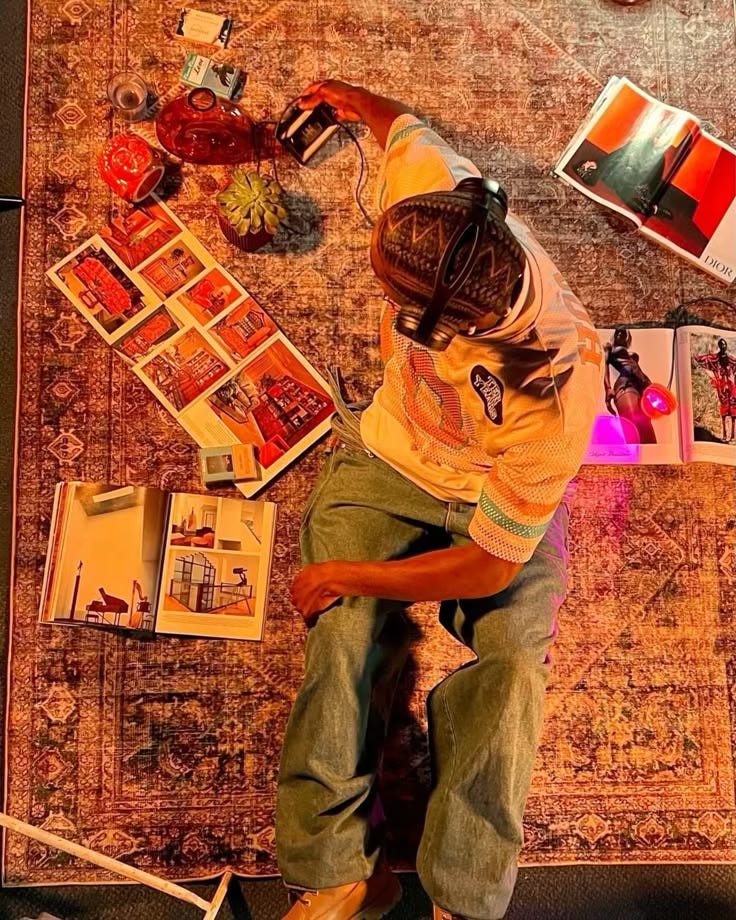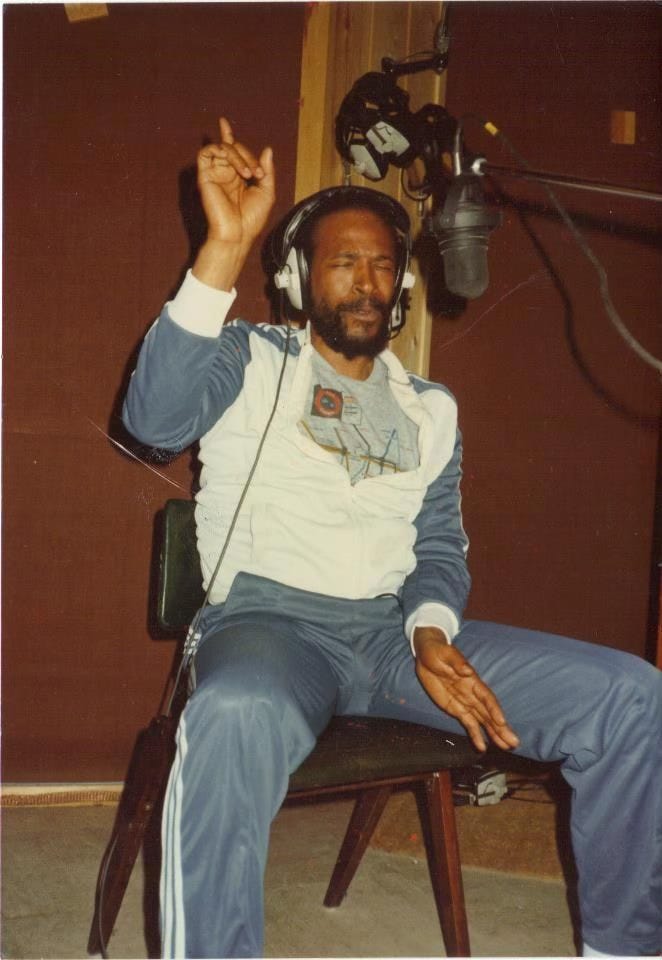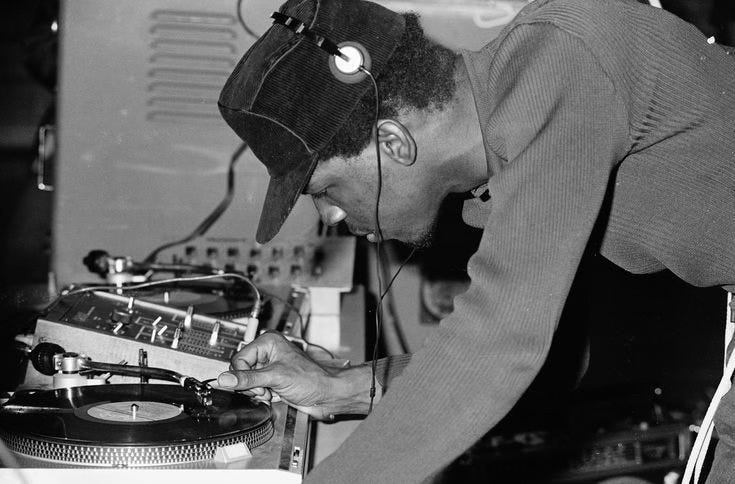Sampling is like modern day alchemy.
"And sampling reminds us of our history, reminds the older generations of their fight and triumph and awakens the curiosity and thirst for the same in newer generations."
Sometimes when I’m feeling good I might listen to a certain playlist, and when I’m in my work flow I will play another. The same goes on for most emotions as I’ve learned this adds value to my life enjoyment by curating a vibe that’s for me. Yes, days have sad moments, but the music in my headphones will allow the tears to flow while my body moves to the rhythm of the beat.
That is what makes Black music the backbone of Black culture.
So much is preserved in our music, but today we are bringing our focus back on how sampling is the timestamp preservation. Carmelia takes us through the Living Evolution on sampling and provides evidence that sampling is alchemy.
Living Evolution
On sampling
In classical music you start out with a theme, a core melody or musical story if you will. Then there are variations that flow out, like roots on a branch, pulling in ideas, soaking up aspects of different sounds to bring together the full picture. Often there is a story told through the music, complex in flavor, with distinctions between the old world and new. Hip-hop is what happened when thousands of years of farming technique met the industrial revolution. Its genesis and evolution meant that now any idea, theme, and story was available, and the right producer could engineer it to give you a completely modified sound or flip.
Compare it to wine making at the highest levels. Seriously, think about it for a second, great winemakers know the soil, the chemistry, the history of the earth, the flavors that exist naturally and the things they need to tailor and create. Great hip-hop producers do the same with sampling. They pull historical influences from blues, soul, classical, and every iteration of jazz and then figure out how to mold those into a song, layering the right levels of instrumentation on top to blend everything so that it's pleasing to the ear.
It's easy to diminish the act of sampling as simply copying another artist for profit and when badly done, that is the result. But friends, there is a significant amount of engineering that goes into a good beat. A producer needs to understand timing, pitch, timbre, dynamic processing, and a whole bunch of other technical stuff to get it right.1 When you look on YouTube and you see people playing mad scientist with their favorite software or hardware to create a beat, you're seeing engineers at work.
Now you may say but most producers have studio engineers. Most winemakers have people at the vineyard working too, it doesn't discredit their process or the quality of the wine. It simply means that collaboration is critical to producing something great. They also have a variety of tools at their disposal to make the wine, from grape picking machines to casks and sophisticated machines for fermentation. Producers have records, synthesizers, plug-ins, pedals, and all manner of hardware and software available, these are the tools to mold and shape sound.
When it comes to sampling, the starting point is the ear. Being able to hear something cool, or intriguing or interesting in a flash of a song is a process that requires intense listening and comprehension. Take Etta James version of My Funny Valentine. It's rough, grating like a room filled with the smell of old cigarettes and sandpaper. But Kanye West found the yearning in it and flipped it into a hit.
Or think about the syrup sweetness of Ain't No Mountain High, a Motown Classic. It's cadence is simple and yet when Jimmy Jam and Terry Lewis flip it for Janet Jackson's My Need, it becomes sensual and pulsing. There are even finer points and samples where producers use seconds of Japanese TV commercials, African jazz hits2, and so much more to create sounds that are layered, nuanced, and hits.
This is arguably a modern day form of alchemy. Because even if you start with hearing something interesting, it takes a lot of experimentation to get to the point where you have a beat. Sometimes that's quick, other times, it's slow, like being in a large library and trying to search for a single piece of paper without the Dewey decimal system.3 If the sample is a vocal or a piece of instrumentation then the beat has to be created. The pitch of the sample has to be fit correctly against the beat and the volumes have to be right. There's a question of which drums, how many to use and when to quantize versus letting things sound more natural. Thousands of little decision points make up the music.4
Sometimes because producers pick up these skills so quickly or execute the tasks so rapidly, it is easy to discount the work, skill, and talent that went into arriving at that point. It's similar to how people take for granted that a certain vineyard is going to produce good wines. This ignores the conditions of drought, fire, flood, and other challenges that can harm the delicate grapes on the vine. Without proper engineering, or good decision making, the harvest never comes to fruition.
The complexity in hip hop is that it builds on so many things, weaves together a lineage that crosses borders and boundaries and keeps innovating. Think about how much Fela Kuti and Manu Dibango influenced Jay-Z. He's not the producer, but something in the grandioseness and familiarity of the music called to him enough to put pen to paper and speak over songs that once called for people to wake up, dance, pay attention, and get free. If the producer doesn’t start by hearing something special in the music, if they can’t make the decisions creatively to craft a sound that speaks to someone, inspires them enough to sing a melody or pen a verse, then we never get the hits that make so many moments in our lives and in our collective history.
It is revolutionary to be able to take sounds and stories cast aside and left for dead and to reinvigorate them in fresh and dynamic ways. It challenges the institutional notion that only the corporate channels can decide which music and stories are relevant and meaningful for mass consumption. Part of the attempt to deeply commercialize hip hop was an effort to co-opt the message. Tying people up in endless litigation and copyright infringement cases over sampling songs that were not producing income was never about an artist's rights, (they don't get paid anyway). It's a mechanism to control the means of production and distribution of the messages.
Think about it, if you can pen a hit over a tight beat that moves the masses, and cuts across generations then what happens? The cacophony of commercialized noise starts getting cut off. And sampling reminds us of our history, reminds the older generations of their fight and triumph and awakens the curiosity and thirst for the same in newer generations. How many times have you seen the original song sales go up or return to the charts on account of a well done sample? How many times has a sample then been used in political campaigns or in sports promotions to motivate people? If the music didn't matter then they would just have us move in silence.
Music alone can't save us in these times, but the kind art that preserves our will to fight is still important. The complexity and ingenuity of producers in building songs and ideas from scraps of sound is the kind of thinking we will need to reform and refashion our society. It's going to require the kind of listening and careful complexity that takes the remnants of what was good from the old regime and builds something new and fresh that we can live with.
There is a form of evolution that is necessary both in music and in our modern world. We started with the themes but in times where simple variation no longer works, our task is to become the alchemists and engineers of our future.
Sampling is a form of preservation.
You know when the beginning of a song starts but it’s a sample of the same beginning of another song, and the older generation starts to jam thinking it’s their song. Some of us got a taste of that feeling when SZA and Kendrick Lamar released “30 For 30” having us thinking it was “Throw Some D’s” by Rich Boy at first. And honestly, every time I hear eit…
Timbre - sound quality of a musical note, Pitch - how high or low a note sounds, Dynamic Processing - The changes made to a signal or soundwave over time, think of it like the seasoning and marinating of sound.
This is where the sample was used:
Pre-search engines, this was how people would go and find information, it was a special set of references that organized all of the information by topic and by name in the library, so each book was assigned a number and matched to two cards kept in long dusty boxes, requiring a bit of precision and patience to find what you needed.
For further reading check out the Dilla Time by Dan Charnas, it does a great job of breaking down time codes and sampling.









This is great, I remember this being a conversation in the chat so to see it come to life was incredible.